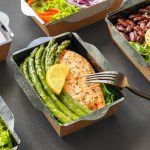The ONE organ responsible for high blood pressure.
10 Healthy Tips To Relieve High Blood Pressure

High blood pressure is a dangerous condition that can damage your heart. It affects one in three people in the US and 1 billion people worldwide.
If left uncontrolled, high blood pressure raises your risk of heart disease and stroke.
But there’s good news. There are a number of things you can do to lower your blood pressure naturally, even without medication.
What creates high BP?
What causes high blood pressure? High blood pressure usually develops over time. It can happen because of unhealthy lifestyle choices, such as not getting enough regular physical activity. Certain health conditions, such as diabetes and having obesity, can also increase the risk for developing high blood pressure.
Can you feel high blood pressure?
Unfortunately, high blood pressure can happen without feeling any abnormal symptoms. Moderate or severe headaches, anxiety, shortness of breath, nosebleeds, palpitations, or feeling of pulsations in the neck are some signs of high blood pressure.
Here are 10 natural ways to combat high blood pressure.
1. Walk and exercise regularly
Exercise is one of the best things you can do to lower high blood pressure.
Regular exercise helps make your heart stronger and more efficient at pumping blood, which lowers the pressure in your arteries.
In fact, 150 minutes of moderate exercise, such as walking, or 75 minutes of vigorous exercise, such as running, per week, can help lower blood pressure and improve your heart health.
What’s more, doing even more exercise than this reduces your blood pressure even further, according to the National Walkers’ Health Study.
2. Reduce your sodium intake
Salt intake is high around the world. In large part, this is due to processed and prepared foods.
For this reason, many public health efforts are aimed at lowering salt in the food industry.
Many studies have linked high salt intake with high blood pressure and heart events, including stroke.
However, more recent research indicates that the relationship between sodium and high blood pressure is less clear.
One reason for this may be genetic differences in how people process sodium. About half of people with high blood pressure and a quarter of people with normal levels seem to have a sensitivity to salt.
If you already have high blood pressure, it’s worth cutting back your sodium intake to see if it makes a difference. Swap out processed foods with fresh ones and try seasoning with herbs and spices rather than salt.
3. Drink less alcohol
Drinking alcohol can raise blood pressure. In fact, alcohol is linked to 16% of high blood pressure cases around the world.
While some research has suggested that low-to-moderate amounts of alcohol may protect the heart, those benefits may be offset by adverse effects.
In the U.S., moderate alcohol consumption is defined as no more than one drink a day for women and two for men. If you drink more than that, cut back.
4. Eat more potassium-rich foods
Potassium is an important mineral.
It helps your body get rid of sodium and eases pressure on your blood vessels.
Modern diets have increased most people’s sodium intake while decreasing potassium intake.
To get a better balance of potassium to sodium in your diet, focus on eating fewer processed foods and more fresh, whole foods.
Foods that are particularly high in potassium include:
- vegetables, especially leafy greens, tomatoes, potatoes, and sweet potatoes
- fruit, including melons, bananas, avocados, oranges, and apricots
- dairy, such as milk and yogurt
- tuna and salmon
- nuts and seeds
- beans









